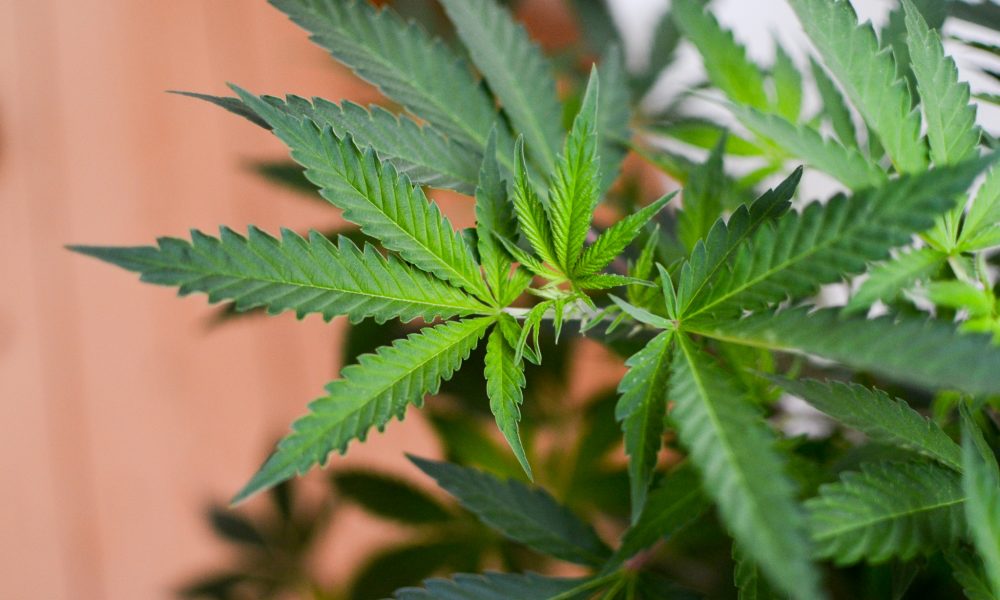Medical marijuana legalization is being revived in the Kansas legislature, with a senator introducing a new reform bill on Monday after separate House-passed legislation stalled in the Senate earlier this year.
Sen. Robert Olson (R) is sponsoring the new Medical Marijuana Regulation Act, which would provide patients diagnosed with a series of medical conditions with to access limited forms of cannabis.
It’s been introduced in the Senate Federal and State Affairs Committee, which the sponsor chairs. This filing comes about a year after the House approved similar legislation, only to have it quashed in committee in the Senate in January.
The new measure lists more than 20 qualifying conditions, including cancer, glaucoma, multiple sclerosis, Parkinson’s disease, post-traumatic stress disorder, and autoimmune disorders. It would also allow legal marijuana access for patients with “any other chronic, debilitating or terminal condition that, in the professional judgment of a physician licensed in this state, would be a detriment to the patient’s mental or physical health if left untreated.”
Patients would be entitled to obtain a 30-day supply of medical cannabis products at a time. For dry flower marijuana, that purchase limit would be at least three ounces. But there would be an exception “upon submission of a written certification from two independent physicians that there are compelling reasons for the patient or caregiver to purchase greater quantities of medical marijuana.”
—
Marijuana Moment is already tracking more than 1,000 cannabis, psychedelics and drug policy bills in state legislatures and Congress this year. Patreon supporters pledging at least $25/month get access to our interactive maps, charts and hearing calendar so they don’t miss any developments.![]()
Learn more about our marijuana bill tracker and become a supporter on Patreon to get access.
—
Patients’ medical cannabis recommendations would be valid for 90 days, after which point a physician may “renew the recommendation for not more than three additional periods of not more than 90 days each,” the bill says. After that, another extension could be issued “only upon a physical examination of the patient.”
Multiple regulatory bodies would be in charge of administering the program. The state Department of Health and Environment, Board of Healing Arts, Board of Pharmacy and a renamed Alcohol and Cannabis Control division would each play a role in the regulations.
The legislation would also establish a medical marijuana advisory committee to help oversee the program and issue recommendations.
“This is one of the best days that we’ve had working for reform in three years,” Erin Montroy, co-president and CEO of the Kansas Cannabis Business Association (KSCBA), told Marijuana Moment in a phone interview on Monday.
“What we’ve seen here is so encouraging because it has been a true representation of democracy,” Montroy said. “This is how the government is supposed to work. This is how things are supposed to be done.”
The bill calls for five different license types: cultivators, processors, laboratories, distributors and retailers. People would be rendered ineligible for a medical marijuana licenses if they’ve been convicted of a felony, unless that conviction was expunged at least 10 years before the application is submitted.
Advocates are generally encouraged by the bill’s introduction, and they expect a hearing on it in Olson’s committee in the coming days. They say that certain provisions represent an expansion of the previously House-passed legislation, in particular when it comes to the number of qualifying conditions.
Still, there would be no home cultivation option—a policy that faced significant pushback in past sessions. And patients would not be allowed to smoke or vape marijuana products, even though “plant material” would be among the types of marijuana that could be dispensed by licensed businesses.
There would also be a 35 percent THC cap on marijuana plant material.
Counties would be able to enact local bans on permitting marijuana businesses from operating within their jurisdictions “by adoption of a resolution,” according to the text of the bill, which has not yet been posted on the legislature’s website but which was obtained by Marijuana Moment.
Regulators would have until January 1, 2024 to promulgate rules for the program.
Daniel Shafton, a consultant for KSCBA, told Marijuana Moment that this session “we have seen some of the best legislating and work on this issue—and on any issue, period.”
“The way that the chairman and senators and representatives have been involved up to this point—have done their homework, going to facilities and neighboring states, understanding neighboring legislation, as well as their ability and willingness to get all the voices to the table from activist to business owners—has shown that they understand that this is important to the public.”
He said legislators “have demonstrated every step of the way that they’re taking this seriously, and listening to the voices that will be most affected by it.”
With respect to equity provisions, there does not appear to be an explicit pathway for expungements, nor licensing prioritization for people from communities most impacted by prohibition as advocates have pushed for in other states.
Separately, House Minority Leader Tom Sawyer (D) and Assistant Minority Leader Jason Probst (D) said in January that they will be introducing proposals to let voters decide on legalizing medical and adult-use marijuana in the state. At the time, Sawyer said he was “hopeful” that the legislature might separately advance the House-passed legalization measure.
Gov. Laura Kelly (D), for her part, wants to see medical cannabis legalization enacted, and she said earlier this year that she “absolutely” thinks the bill could pass if “everything else doesn’t take up all the oxygen.”
She previously pushed a separate proposal that would legalize medical cannabis and use the resulting revenue to support Medicaid expansion, with Rep. Brandon Woodard (D) filing the measure on the governor’s behalf.
Kelly has she said she wants voters to put pressure on their representatives to get the reform passed.
The governor also said in 2020 that while she wouldn’t personally advocate for adult-use legalization, she wouldn’t rule out signing the reform into law if a reform bill arrived on her desk.
Read the Kansas medical marijuana legalization bill below:
Photo courtesy of Philip Steffan.
Medical Disclaimer:
The information provided in these blog posts is intended for general informational and educational purposes only. It is not a substitute for professional medical advice, diagnosis, or treatment. Always seek the advice of your physician or other qualified healthcare provider with any questions you may have regarding a medical condition. The use of any information provided in these blog posts is solely at your own risk. The authors and the website do not recommend or endorse any specific products, treatments, or procedures mentioned. Reliance on any information in these blog posts is solely at your own discretion.







